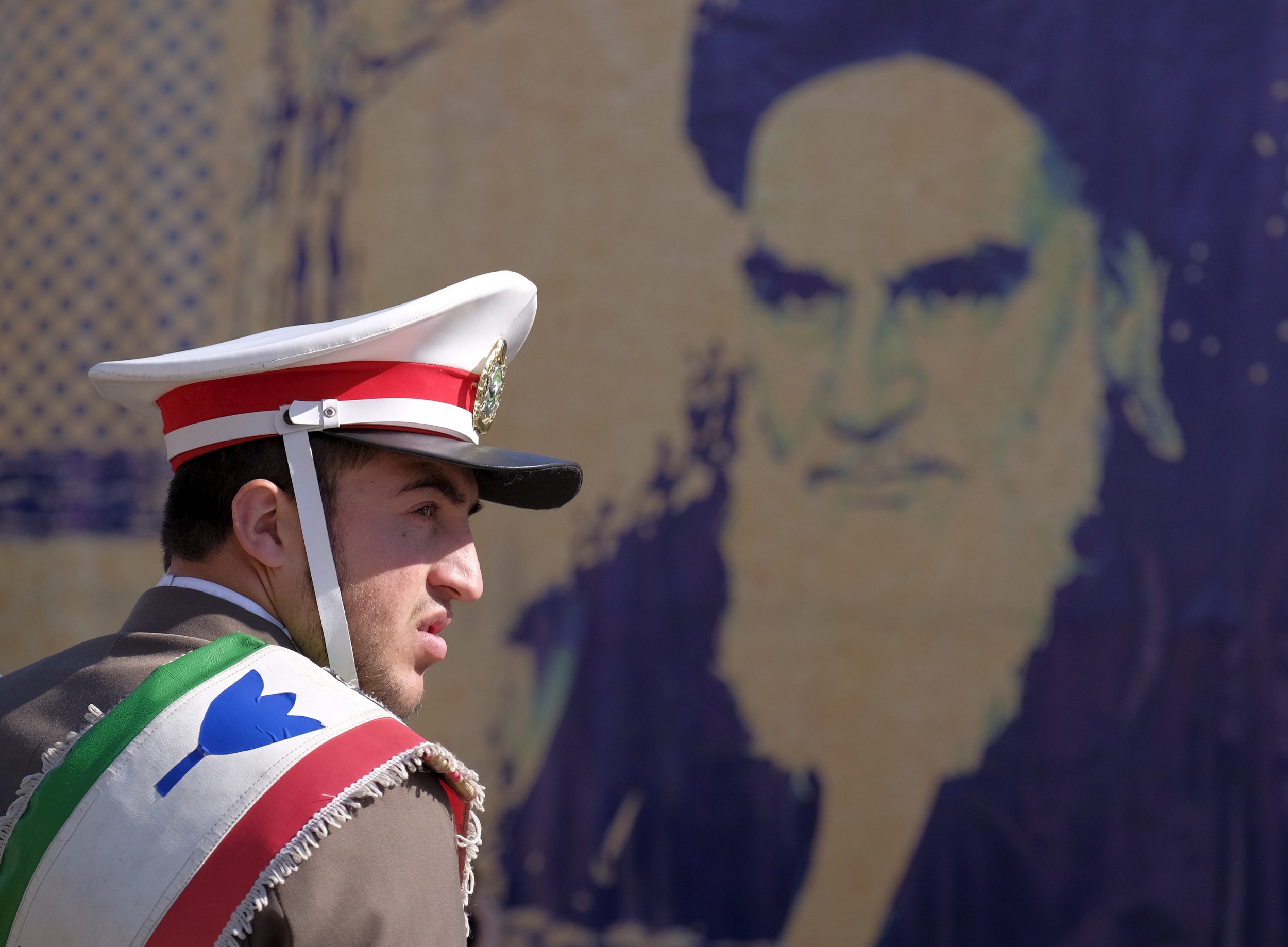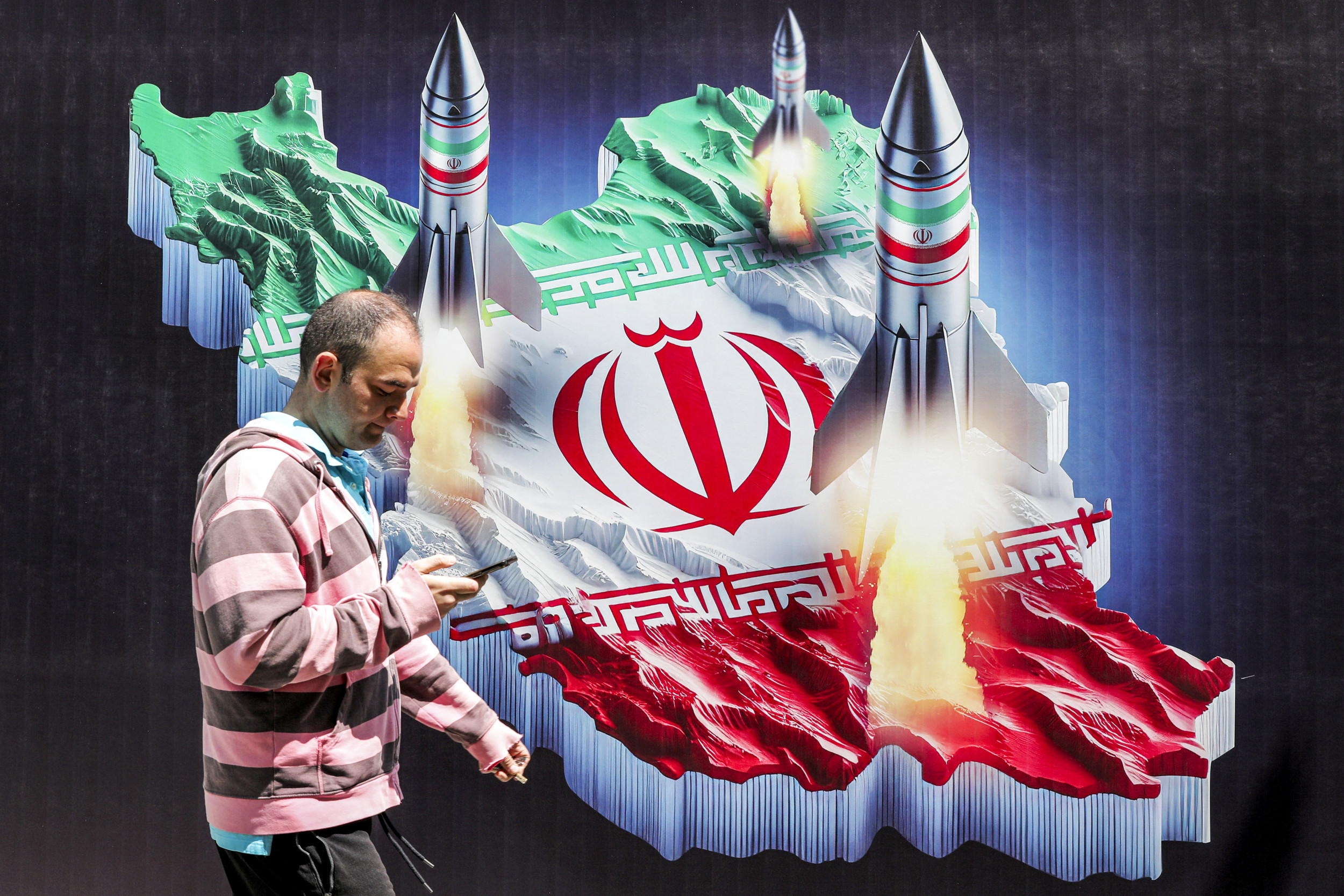
The infiltration of Palestinian territory by the Islamic State militant group (ISIS) could draw in American ground troops in our next futile Middle East conflict. The way to offset Sunni ISIS is to let Shia Iran do the fighting in the Middle East's sectarian war, via forces almost as vicious including Hezbollah and the Revolutionary Guard. And by supporting Shia movements fighting Sunni radicals as Iran is already doing in Yemen.
Though the coverage of ISIS has been focused on Syria and Iraq, the group's penetration of Egypt was its most resounding achievement last year. The overthrow of Libya's Muammar el-Qaddafi allowed Libyan weapons to flow to ISIS and onwards into various African countries. The bloody military coup that toppled the elected, if incompetent, Mohammed Morsi's Muslim Brotherhood government saw peaceful protesters jailed and liberals and journalists tortured, along with tens of thousands of Brotherhood activists and accused sympathizers. A Muslim Brotherhood youth told Al-Monitor his formerly peaceful fellow prisoners had contracted "ISIS fever."
After Egypt attacked ISIS camps in Libya, ISIS responded in the neighboring Egyptian desert, downing a Russian plane—Russia is backing Syria's Shia regime. That downing was claimed by an ISIS branch in Egypt's Sinai region. ISIS is now competing with a far weaker Hamas in Gaza, and is infiltrating the West Bank; the Jerusalem Post in 2015 reported that ISIS recruitment campaigns were increasingly targeting Palestinian fighters, while the ISIS-affiliated Sheikh Omar Hadid Brigade has conducted attacks against Israeli military targets, the International Business Times has reported. The worried Israeli defense forces then allowed Egypt to bolster its Sinai deployment beyond Camp David's authorization.
In June 2015, ISIS militants declared on video: "We will uproot the state of the Jews and you [Hamas] and Fatah [the PLO]… will be overrun by our creeping multitudes." In 2014, Obama administration officials were reportedly concerned about Israel being dragged into the conflict, and earlier this year Obama's former top adviser on ISIS told Israeli and international security officials at a conference in Tel Aviv that even as ISIS is under pressure in Iraq and Syria, it still poses a substantial threat elsewhere. Should ISIS try to storm Israel, will American ground troops be drawn into a Middle East war?
That is the main ISIS challenge to America, not occasional terrorist attacks, however gruesome. After 9/11, neoconservative firebrands insisted: "The road to Jerusalem leads through Baghdad." Now it may lead through Sinai.
But Israel's Prime Minister Benjamin Netanyahu insists the danger comes from the north, Iran, and not the south. We quixotically imagine enlisting Sunni Gulf princes as allies despite ISIS being partly financed by wealthy "angel investors" in the gulf. Yet Shia Iran is the power most clearly interested in opposing Sunni ISIS . Had it been understood that the Shia-Sunni "clash of civilizations" structured the theater of action—not totalitarianism—we might have avoided an ongoing 15-year debacle. Western intervention has not and will not end this war but prolong it.
The main ISIS threat to the U.S. is not extremism, but another intervention in a sectarian/dynastic war that could bog down our troops for decades. Moreover, we may face a marathon advance toward global hegemony from China. Can we afford to fight two protracted conflicts for the rest of the century?
There is another option. That is the "offshore balancing" that Britain practiced during a sectarian war in the 16th and 17th centuries, similar in many ways to the Shia-Sunni conflict in the Middle East today. The Catholic-Protestant conflict (that ended in the Thirty Years War) began with the Protestant Reformation in the 1520s and lasted until the Peace of Westphalia in 1648. Britain wisely refrained from sending troops into the continental carnage, but pursued diplomacy and indirection to prevent any power — Catholic or Protestant, Hapsburg or Bourbon, France or Spain — from dominating Europe's mainland.
Britain maintained this stance and continued to do so for centuries. The Thirty Years War and the century of sectarian war that preceded it ended in exhaustion and sparks of Enlightenment. The ideal outcome for the U.S., Israel and the greater Middle East today is an analogous deadlock and a Muslim Peace of Westphalia. The US should pursue a similar strategy, allowing regional opponents of ISIS such as Iran to do the fighting.
Forbearance permitted Britain to focus on building an unparalleled scientific, technological, financial and military muscle. When Europe's long war expired, the Enlightenment yielded commercial, scientific, technological, philosophical and political progress, including the American Constitution.
Whereas Al-Qaeda's target is the West, the "far enemy," The target of ISIS's so-called caliphate is "the near enemy" (e.g. Iraq, Syria, Jordan Lebanon, North Africa, Central Asia, Egypt and Israel). The millenarian ISIS, unlike Al-Qaeda, is living the apocalypse, observing 1,500 years of Islamic doctrines with the literalism of those imagining the world was created in six days. ISIS explained its Parisian atrocities as retaliation for France's air and sea attacks in Syria—the most extensive Western intervention in the region. Despite cries from Washington politicians and pundits that the Paris and Brussels assaults signify "a global terrorist threat," the ISIS focus remains "the near enemy."
"Brand Caliphate" offers European jihadists (a tiny portion of its Muslims) not merely jihad like Al-Qaeda but an Islamic army and state. The ISIS utopian appeal is as potent today as was Stalin's Soviet Union, Mao's China, Fidel's Cuba and other dystopias.
Worried about global jihadis and caliphates? Sanction entities that fund jihadis, pursue an international accord ransoming hostage-takers, form a limited offshore counter-terrorist presence that could strike against global training camps. Rebuild our nation's infrastructure. Pivot to Asia. Stay strong, but be wise.
Robert S. Leiken is an analyst and commentator who has written on Latin America, terrorism, communism and immigration. His book "Europe's Angry Muslims" (Oxford University Press) is now available in paperback in a second revised edition.
Uncommon Knowledge
Newsweek is committed to challenging conventional wisdom and finding connections in the search for common ground.
Newsweek is committed to challenging conventional wisdom and finding connections in the search for common ground.
About the writer
To read how Newsweek uses AI as a newsroom tool, Click here.








